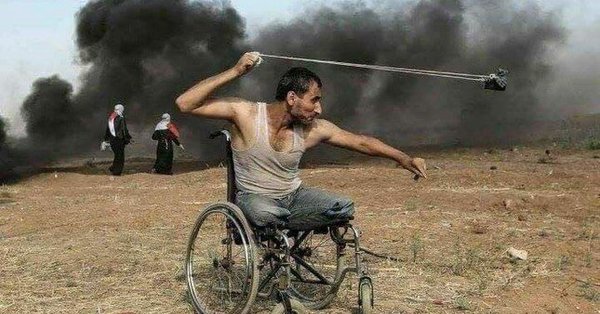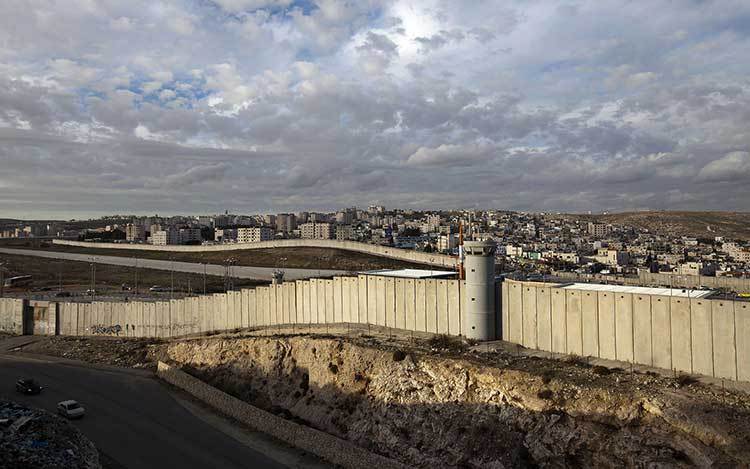
Views: 130
The meaning of intifada
The Arabic word intifada means “shaking off” but in the political language as a term, it means “uprising”. More precisely, this term refers to the two Palestinian uprisings on both territories of the West Bank and the Gaza Strip. These two territories were occupied by Israel during The 1967 Six-Day War between Israel and the coalition of the Arab states in the region of the Middle East.[1] Both intifadas lasted from 1987 to 2005.[2]
The First Intifada
The First Intifada was, in fact, the spontaneous uprising in 1987 which lasted until 1993. It began as a revolt of the Palestinian youth throwing stones against the forces of the Israeli occupation but soon became a widespread movement involving civil disobedience with periodic large-scale demonstrations supported by commercial strikes. Usually, it is considered that the beginning of the First Intifada was a response to:
- The realization that the Palestinian Question in the Middle East together with the Arab-Israeli conflict was not seriously taken into consideration by the Governments of Arab states.
- The fact that the Palestinians in the so-called Occupied Territories (after The 1967 Six-Day War) should have to take matters into their own hands.
The West Bank’s and Gaza’s Palestinians started an uprising in December 1987 against the policy of occupation run by the Israeli Government. It has to be clearly noted that the First Intifada was not either started or directed by the leadership of the Palestine Liberation Organization (the PLO) which was at that time located in Tunis.[3] It was, actually, a popular mobilization organized by local Palestinian organizations and institutions in Palestine. The movement very quickly became massive involving several hundreds of thousands of Palestinians of whom many had not participated before in the previous resistance actions and many of them were teenagers and even kids. The response of the Israeli security forces was brutal repression of the whole Palestinian population of the Occupied Territories.
During the first years of the uprising, the movement chose a similar form of the fight of Mahatma Gandhi (1869−1948) in India against British colonial authorities: civil disobedience, massive demonstrations, general strikes, refusal to pay taxis, boycotts of Israeli products, writing political graffiti or establishment of underground the so-called “freedom schools”.[4] Later, the uprising took certain forms of “terrorist” actions like stone-throwing, Molotov cocktails, or putting the barricades to stop Israeli military forces.
The actions of the First Intifada have been organized within the framework of the United National Leadership of the Uprising which embraced several popular committees. The fact was that Intifada succeeded in attracting up to that time the biggest attention by the international community, especially of those dealing with human and minority rights to the situation of Palestinians living in the Gaza Strip and the West Bank. The Israeli occupation of these territories has been criticized as never since 1967.[5]
Israeli Defence Minister Yitzhak Rabin’s strategy to deal with Intifada was to use military force and security power. In the years from 1987 to 1991, according to Palestinian sources, the Israeli army murdered over 1.000 Palestinians. Among them, there were some 200 teenagers under the age of 16. Army’s actions included massive arrests resulted that during the First Intifada, Israel had the highest number of prisoners per capita in the world. Due to such brutal actions, by 1990 most of the Palestinian leaders of the Intifada had been in prison and, therefore, the uprising lost its cohesive force but, nevertheless, it continued until 1993.
The negotiations, the Washington talks, and the Oslo Accords
During the First Gulf War in 1990−1991, the Palestinians and their national organization the PLO opposed the US-led attack on Iraq. After this war, the PLO became diplomatically isolated, and Kuwait and Saudi Arabia stopped financing it, therefore, bringing the PLO to the financial and political crisis.
The US administration after the First Gulf War decided to politically make firmer its position in the Middle East by diplomatically promoting Washington’s crucial role in the process of resolution of regional cancer – the Arab-Israeli conflict. It was organized multilateral conference in Madrid in October 1991 attended by on one side the Palestinian representatives and the representatives of the Arab states and on the other side representatives of Israel led by PM Yitzhak Shamir who was practically forced to participate in the conference under the pressure by the US President George H. W. Bush (Bush Senior).[6] However, behind the Israeli delegation, it was, in fact, Washington dictating Israeli conditions to negotiate. More precisely, Y. Shamir required that:
- The PLO be excluded from the conference (as considered to be a terrorist organization); and
- The Palestinians would not “directly” raise the question of independence and statehood for Palestine.
The talks after Madrid have been continued in Washington where the Palestinian delegation was composed of negotiators from the Occupied Territories. However, the representatives of East Jerusalem were not allowed to participate in the negotiations by Israel on the grounds that East Jerusalem is part of the State of Israel. Formally, the PLO representatives were excluded from the conference but in reality, its political leaders regularly consulted with and advised the official Palestinian delegation but little progress was achieved through the process of negotiations. According to Israeli PM Y. Shamir, the focal aim of the Israeli delegation and negotiation policy was to drug out Washington’s talks for some 10 years as after that the Israeli annexation of the West Bank would be simply de facto accomplished fact for the international community.
Very soon, in 1992, immediately when Yitzhak Rabin became a new Israeli PM, the human rights of Palestinians in the Occupied Territories (the Gaza Strip and the West Bank) tremendously became worse – a fact which dramatically undermined the legitimacy of the Palestinian delegation to Washington’s talks and prompted the resignation of several delegates. There were several reasons for the failure of Washington’s talks as human rights violations and economic decline in the Occupied Territories, growth of radical Islamism as a challenge to the PLO, violent actions against Israeli security forces and civilians by Hamas and Islamic Jihad, and, finally, the first suicide bombing (in 1993).[7]
There were two chief reasons for the Israeli PM Y. Rabin to continue the negotiations with the Palestinian representatives:
- The real security threat for Israel of radical Islam and Islamic fundamentalists; and
- The stalemate in the Washington talks.
Those two factors also contributed to Y. Rabin’s Government reversing the traditional Israeli refusal to negotiate with the PLO (at least not directly). As a consequence of such a drastically changed political situation, it was Israel to initiate secret talks directly with the Palestinian representatives from the PLO in Oslo, Norway. The talks resulted in the Israeli-PLO Declaration of Principles, which was signed in Washington in September 1993. The main points of the declaration were:
- A fact that it was founded on bilateral recognition of Israel and the PLO as legitimate negotiating sides.
- The declaration established that the Israeli forces would withdraw from the Gaza Strip and Jericho.
- The additional withdrawals of Israel from unspecified territories of the West Bank during a five-year interim period were agreed upon.
- However, the key issues of Israeli-Palestinian relations have been put aside to be discussed in some final status talks like the extent of the land to be ceded by Israel, the status of the city of Jerusalem, the Palestinian refugee problem’s resolution, the nature of the Palestinian entity to be established, the question of the Jewish settlements in the West Bank or water rights.
With the 1993 Oslo Accords, the First Palestinian Intifada against the State of Israel was over.
Ex-University Professor
Research Fellow at Centre for Geostrategic Studies
Belgrade, Serbia
www.geostrategy.rs
sotirovic1967@gmail.com
© Vladislav B. Sotirovic 2024
Personal disclaimer: The author writes for this publication in a private capacity which is unrepresentative of anyone or any organization except for his own personal views. Nothing written by the author should ever be conflated with the editorial views or official positions of any other media outlet or institution.
[1] The 1967 Six-Day War from 5th to 10th June is known in the Arabic world as the June War. The formal reason for this war has been three requests by Egypt to the OUN Emergency Force in Sinai: 1) to withdraw their detachments from the Israeli border; 2) the increase of Egyptian military troops on the Sinai Peninsula; and 3) to close the Straits of Tiran in the Gulf of Aqaba for the use by Israeli ships. Three Arab states made a military coalition against Zionist Israel: Egypt, Syria, and Jordan. The 1967 Six-Day War was started by the Israeli Minister of Defence General Dayan as a pre-emptive airstrike. However, it was soon followed by the Israeli occupation of the Sinai Peninsula, Old Jerusalem, the West Bank, the Gaza Strip, and the Golan Heights during two last days of the war [Guy Laron, The Six-Day War: The Breaking of the Middle East, New Haven−London: Yale University Press, 2017].
[2] Don Peretz, Intifada: The Palestinian Uprising, London−New York: Routledge, 2018.
[3] The Palestine Liberation Organization (the PLO) is both a political and military organization that was created in 1964 for the sake of uniting different Arab Palestinian groups to fight Israeli anti-Palestinian policy on the land of Palestine. The PLO became dominated since 1967 by al-Fatah that was led by Yasser Arafat. In 1974, the PLO became recognized by the Arab states as an official political and national representative of all Palestinians. The Israeli military invasion of South Lebanon in 1982 decreased its military power and organization itself. As a consequence, the PLO became reorganized in Tunisia. The organization, however, became split into several extremist-radical groups like the Popular Front for the Liberation of Palestine or the Black September (classic terrorist group) who became responsible for kidnappings, hijackings or murdering within or outside of the Middle East. Yasser Arafat, therefore, persuaded in 1988 the PLO to renounce violence and terrorist acts and its governing council recognized the existence of Israeli state. As a direct consequence of such political move, since 1988, the PLO was accepted by many states as being a Government-in-Exile of Palestine. Yasser Arafat in 1993 acted as a Chair of the Palestinian National Authority administering the territories of the Gaza Strip and the West Bank [Jillian Becker, The PLO: The Rise and Fall of the Palestinian Liberation Organization, Bloomington, IN: AuthorHouse, 2014].
[4] The regular schools were closed by the military authority of Israel as an act of revenge for Intifada.
[5] The Palestinian side claims that during the First Intifada, the Israeli Government runs a secret policy of killing of the Palestinians on the Occupied Territories. Such kind of operations has been done by special units who either presented themselves as Arabs in order to approach and execute the victims or by snipers who have been killing from a distance.
[6] The Madrid Peace Process was launched by the US’ President Bush and the Soviet leader M. Gorbachev.
[7] It is a matter of very fact that before the First Intifada started, Israel enabled further development of the Islamic groups among the Palestinians believing to create in such a way opposition to the PLO’s secular nationalism and consequently to divide Palestinians in the Occupied Territories. However, since 1993, it became obvious that Islamic fundamentalist groups are more dangerous for Israel than the PLO. About Hamas, see in [Matthew Levitt, Hamas: Politics, Charity, and Terrorism in the Service of Jihad, New Haven−London: Yale University Press, 2006].
Origins of images: Facebook, Twitter (X), Wikimedia, Wikipedia, Flickr, Google, Imageinjection, Public Domain & Pinterest.
Read our Disclaimer/Legal Statement!
Donate to Support Us
We would like to ask you to consider a small donation to help our team keep working. We accept no advertising and rely only on you, our readers, to keep us digging the truth on history, global politics, and international relations.
FOLLOW US ON OUR SOCIAL PLATFORMS












